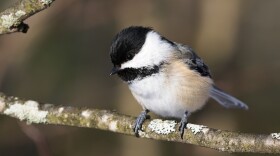-
Farmers, nonprofits and state agencies received almost $3 billion in grants from the Inflation Reduction Act in Missouri, Iowa, Kansas and Nebraska. But recent federal funding freezes have recipients concerned they won’t end up receiving money.
-
Farmers, politicians and agriculture experts are raising alarm about the impact of potential tariffs on Canadian potash, a key mineral needed for fertilizer.
-
Wildfires have become more frequent, burning bigger areas during longer seasons thanks to conditions exacerbated by climate change. More people in the Great Plains and Midwest are turning to “prescribed” burns, which can help reduce wildfire risk.
-
Scientists say amid climate change and biodiversity loss, the world’s herbaria could hold the keys to overcoming the crises in their folders of dried plant specimens. But their future is in question amid cuts to research and education funding.
-
A federal freeze on certain USDA programs has held up billions of dollars for conservation and caused layoffs at a nonprofit in Iowa that supports soil and water quality.
-
Peat bogs sequester a massive amount of the Earth's carbon dioxide. But even as scientists work to better understand bogs' sequestration, the wetlands are under threat.
-
The Soybean Innovation Lab based at the University of Illinois has laid off 30 employees and expects to shut down in the spring if funding isn't restored. Lab leaders at other Land Grant universities say they have avoided layoffs, but that could change.
-
After a historically warm winter last year canceled several events, Michigan’s sturgeon season came back in full swing earlier this month. It broke records with the most participants and the fastest timing, for what’s already known as the shortest fishing season in the state.
-
-
The U.S. could lose up to 15 million acres of forestland to development by 2060. One effort to keep forests intact is to give landowners a financial incentive through the carbon market.
Play Live Radio
Next Up:
0:00
0:00
Available On Air Stations










